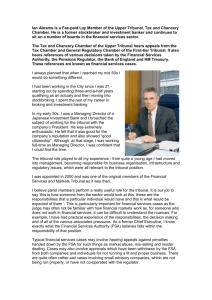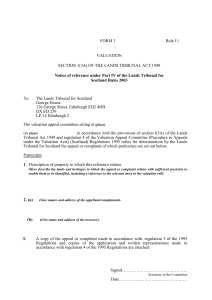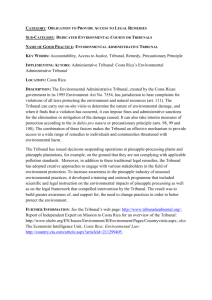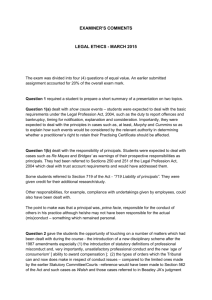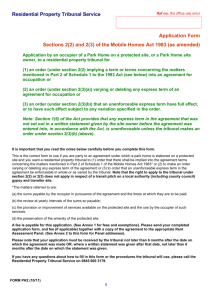Disciplinary Process - Institute of Chartered Accountants of Nigeria
advertisement
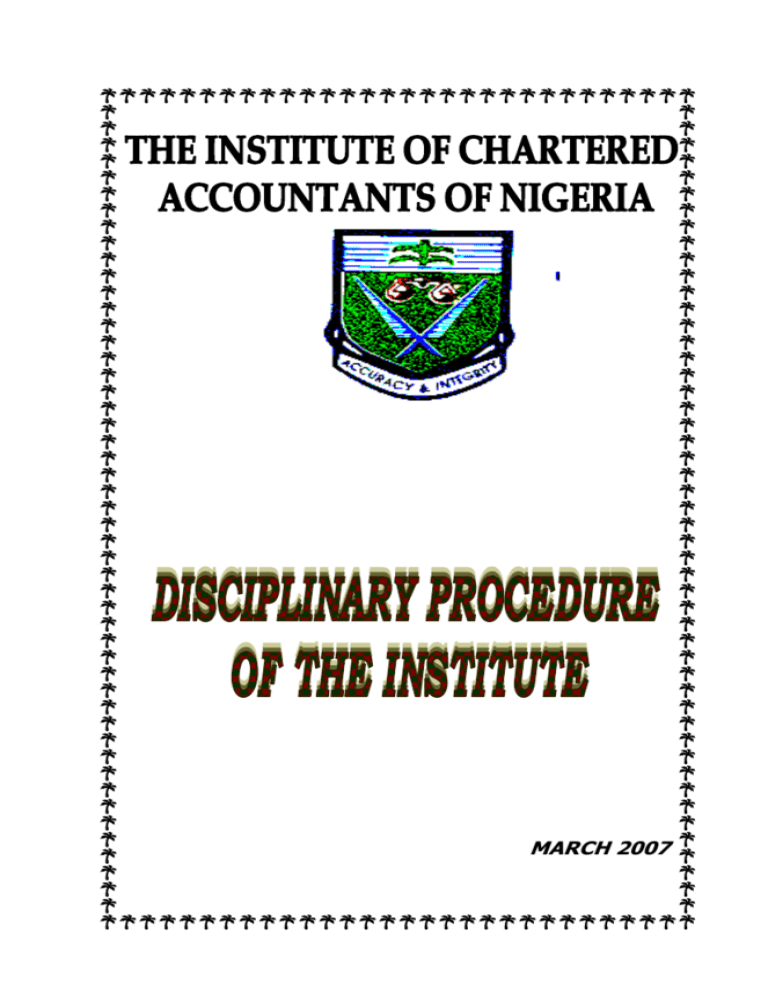
MARCH 2007 INTRODUCTION The Institute was established by Act of Parliament No. 15 of 1965(Cap I 11 Laws of the Federation 2004). This publication is to enlighten members on the processes adopted by the Institute when cases of professional misconduct are alleged against any member by the general public. High ethical standards can be sustained if sanctions are imposed when behaviors and actions considered unbecoming and not measuring up to the standards of ethics set by the Institute are exhibited by members. PROCESSES ADOPTED INVESTIGATING PANEL AT THE Section 11(3) of the Institute of Chartered Accountants’ of Nigeria Act (hereinafter referred to as “The Act”) creates the Accountants’ Investigating Panel and it has the duty of: a) Conducting a preliminary investigation into any case where it is alleged that a member has misbehaved in his capacity as an accountant, or should for any other reason be the subject of proceedings before the Tribunal; and b) Deciding whether the case should be referred to the Tribunal. 1 The processes adopted by the Investigating Panel are as follows: 1. Where a complaint is received by the Institute alleging a case of professional misconduct against a member of the Institute, such complaint shall be referred to the Investigating Panel for necessary action. 2. Where there is a media report alleging professional misconduct on the part of a member, the Panel shall request for a formal complaint from the Complainant by way of a sworn affidavit. 3. A member against whom a complaint has been made other than deriving from an on-going investigation of a complaint with which he or she is concerned as a witness or complainant shall be requested by the Investigating Panel to present his defence or reaction to the complaint or allegation within fourteen (14) days of the receipt of the request to do so. 4. If the member fails to respond within the specified time, a reminder shall be sent requesting him to send his defence/reaction within seven (7) days. 5. If the member does respond, the matter shall be investigated by the Panel applying all the rules of natural justice, equity and good conscience in order to ensure that justice is not only seen to be done, but that justice is actually done in the circumstances of the case. 6. The Panel at the conclusion of the case has the duty of referring the matter to the Tribunal if it finds the case referable to the Tribunal, or terminates the case if it lacks merit in the circumstances. 2 PROCESSES ADOPTED DISCIPLINARY TRIBUNAL AT THE 1. The Accountants’ Disciplinary Tribunal was created by Section 11(1) of the Act and it is charged with the duty of considering and determining any case referred to it by the Panel and any other case of which the Tribunal has cognizance of under the Act. 2. The activities of the Tribunal ensure that members comply strictly with the Rules of Professional Conduct for members as stipulated by the Institute of Chartered Accountants of Nigeria and the International Federation of Accountants. 3. The Tribunal is independent of Council as it is recognized under section 316 of the 1999 Constitution of the Federal Republic of Nigeria as a domestic Tribunal known to Law. 4. The powers of the Accountants’ Disciplinary Tribunal are equivalent to that of the High Court because, appeals from the Tribunal lie to the Court of Appeal. This in other words means that the Institute’s Tribunal is a superior Court of Record. 5. An appeal against the Judgment of the Tribunal, properly brought, shall operate as a stay against the judgment of the Tribunal pending the outcome of the decision of the Court of appeal and the Supreme Court on further appeal thereto. 3




